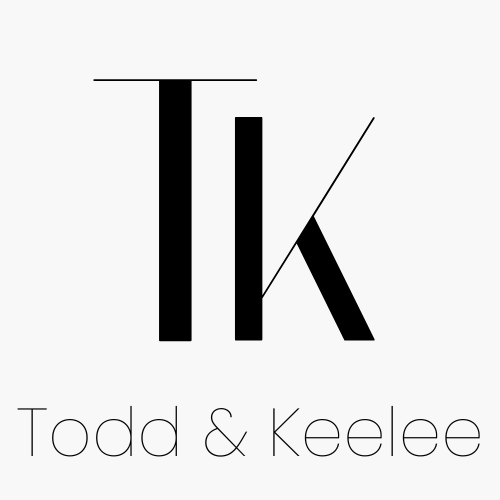In today’s global market, ensuring product safety and achieving market access are pivotal for any business. Whether you’re developing a cutting-edge medical device or launching a new dietary supplement, understanding the realm of regulatory affairs is essential.
This blog post will unravel the complexities of regulatory affairs, illustrating their vital role in maintaining product safety and facilitating access to the market.
We’ll explore risk management strategies, the intricacies of regulatory submissions, and the licenses required, especially if you’re venturing into the sale of supplements. This guide aims to equip you with the knowledge needed to confidently and safely bring your products to market.
The Foundation of Regulatory Affairs
Understanding the Discipline
Regulatory affairs encompass a wide range of activities aimed at ensuring compliance with governmental regulations. This field plays a crucial role in industries such as pharmaceuticals, biotechnology, and food supplements. Experts in regulatory affairs work tirelessly to ensure that products meet safety, efficacy, and quality standards before reaching consumers.
The discipline involves navigating complex legal frameworks that differ across regions. Professionals in this field must be adept at interpreting laws and guidelines from agencies like the FDA in the United States or the EMA in Europe. They act as liaisons between companies and regulatory bodies, ensuring smooth communication and compliance.
The Importance of Compliance
Compliance with regulatory standards is not just a legal obligation; it’s a commitment to consumer safety. Failure to comply can result in severe consequences, including fines, product recalls, and reputational damage. Regulatory affairs professionals help companies avoid these pitfalls by ensuring products meet all requirements.
In addition to safeguarding public health, compliance fosters consumer confidence. When customers trust that a product is safe and effective, they are more likely to purchase it. This trust is crucial for building brand loyalty and sustaining long-term success in the market.
The Scope of Regulatory Affairs
Regulatory affairs cover various aspects of product development and marketing. Professionals in this field are involved from the early stages of product design through to post-market surveillance. They must consider every detail, from labeling requirements to clinical trial data, to ensure compliance.
The scope of regulatory affairs extends beyond initial product approval. It includes ongoing monitoring and reporting obligations to ensure continued compliance. This dynamic and evolving field requires professionals to stay informed about new regulations and industry trends.
Licensing Requirements for Supplements
What License Do You Need to Sell Supplements?
Selling dietary supplements involves complying with specific regulations to ensure consumer safety. In the United States, the FDA regulates dietary supplements under the Dietary Supplement Health and Education Act (DSHEA). While supplements do not require pre-market approval, certain licenses and adherence to Good Manufacturing Practices (GMP) are mandatory.
GMP ensures that supplements are consistently produced and controlled according to quality standards. This process involves rigorous testing and validation to prevent contamination and ensure accurate labeling. Additionally, businesses must register their facilities with the FDA and may need state-specific licenses depending on their location.
Navigating the Application Process
The application process for obtaining what license do you need to sell supplements can be complex. It involves submitting detailed documentation demonstrating compliance with regulatory requirements. This documentation includes product formulations, labeling information, and evidence of GMP adherence.
Regulatory affairs professionals play a critical role in preparing and submitting these applications. Their expertise ensures that all necessary information is provided accurately and promptly. They also act as intermediaries between the company and regulatory agencies, facilitating communication and addressing any inquiries.
The Global Perspective
While the FDA regulates supplements in the United States, international markets have their regulatory frameworks. Exporting supplements requires compliance with the regulations of each target country. This may involve additional licensing, labeling modifications, and adherence to local standards.
Professionals with global expertise are invaluable assets for companies seeking to expand internationally. They understand the nuances of different markets and can guide businesses through the complexities of international compliance.
Ensuring Product Safety Through Regulatory Affairs
The Role of Risk Management
Risk management is a fundamental aspect of ensuring product safety. Professionals assess potential risks associated with a product and implement strategies to mitigate them. This proactive approach helps prevent safety issues before they arise.
It involves identifying hazards, assessing their potential impact, and implementing controls to minimize risks. It requires a thorough understanding of the product, its intended use, and the target consumer. By effectively managing risks, companies can enhance product safety and protect consumers.
Implementing Quality Assurance Measures
Quality assurance is a key component of product safety. Regulatory affairs professionals work closely with quality assurance teams to establish and maintain robust quality systems. These systems ensure that products consistently meet regulatory standards and customer expectations.
Quality assurance involves rigorous testing, inspection, and documentation throughout the product lifecycle. It requires collaboration between various departments, including manufacturing, research and development, and quality control. By prioritizing quality assurance, companies can reduce the likelihood of defects and ensure the safety of their products.
The Importance of Post-Market Surveillance
Post-market surveillance is the continuous monitoring of a product’s performance after it has reached the market. Regulatory affairs professionals collect and analyze data to identify any safety issues or adverse events. This information is crucial for maintaining product safety and compliance.
Post-market surveillance involves monitoring customer feedback, conducting periodic inspections, and addressing any safety concerns promptly. It provides valuable insights into a product’s real-world performance and helps companies make informed decisions about product improvements or recalls.
Navigating Regulatory Submissions
The Process of Regulatory Submissions
Regulatory submissions are formal applications to governmental agencies seeking approval to market a product. These submissions include detailed information about the product’s safety, efficacy, and quality. They require thorough preparation and adherence to specific guidelines.
These professionals are responsible for compiling and submitting these applications. They ensure that all necessary data is included and that the submission meets the agency’s requirements. The process requires meticulous attention to detail and a deep understanding of regulatory frameworks.
Common Challenges in Submissions
Regulatory submissions can be complex and challenging. One common challenge is ensuring data accuracy and consistency across all documentation. Any discrepancies can lead to delays or rejection of the application.
Another challenge is navigating the varying requirements of different regulatory agencies. Each agency has its guidelines and expectations, requiring tailored submissions for each target market. These professionals must stay informed about these differences and adapt their strategies accordingly.
Tips for Successful Submissions
Successful regulatory submissions require careful planning and execution. One important tip is to start the process early. Gathering and organizing the necessary data can be time-consuming, so allowing ample time for preparation is crucial.
Collaboration is also key. Regulatory affairs professionals should work closely with cross-functional teams, including research and development, quality assurance, and marketing. This collaboration ensures that all aspects of the product are accurately represented in the submission.
Finally, staying informed about regulatory changes and updates is essential. Regulations are constantly evolving, and keeping up-to-date ensures that submissions align with current requirements.
Maximizing Market Access Through Compliance
The Role of Compliance in Market Access
Compliance with regulatory standards is essential for gaining and maintaining market access. These professionals help companies meet these standards, ensuring that products can be legally marketed and sold.
Compliance involves adhering to the specific requirements of each target market. This may include obtaining licenses, meeting labeling requirements, and providing evidence of product safety and efficacy. By achieving compliance, companies can expand their reach and access new markets.
Strategies for Overcoming Barriers
Overcoming barriers to market access requires strategic planning and innovation. These professionals develop strategies to address potential obstacles, such as differing regulatory requirements or cultural considerations.
One effective strategy is engaging with regulatory agencies early in the product development process. This proactive approach allows companies to receive feedback and make necessary adjustments before submission. Building strong relationships with regulatory authorities can also facilitate smoother approvals and faster market entry.
The Importance of Adaptability
Adaptability is crucial for maximizing market access. Regulatory landscapes are constantly changing, and companies must be agile in responding to new requirements and challenges. Professionals play a key role in helping businesses adapt to these changes.
By staying informed about regulatory updates and industry trends, companies can remain competitive and seize opportunities in emerging markets. Adaptability also involves continuous improvement of products and processes to meet evolving consumer needs and preferences.
The Future of Regulatory Affairs
Emerging Trends and Technologies
The field of regulatory affairs is evolving with the advent of new technologies and trends. Digitalization, artificial intelligence, and data analytics are transforming how regulatory information is managed and processed. These advancements offer opportunities for more efficient and accurate compliance.
Emerging trends also include increased focus on patient-centric approaches and personalized medicine. Professionals must adapt to these trends by developing strategies that prioritize patient safety and engagement.
The Growing Importance of Globalization
Globalization is expanding the reach of professionals. Companies are increasingly seeking to enter international markets, requiring compliance with diverse regulatory frameworks. This trend highlights the need for regulatory affairs experts with global experience and knowledge.
Globalization also emphasizes the importance of harmonizing regulations across regions. Efforts to align standards and streamline processes are underway, aiming to facilitate smoother market access and reduce trade barriers.
Preparing for Future Challenges
The future of regulatory affairs will present new challenges and opportunities. Regulatory professionals must be prepared to address emerging issues, such as cybersecurity, data privacy, and sustainability. These challenges require innovative solutions and proactive risk management.
Continuous professional development is essential for staying ahead in the field. Professionals should seek opportunities to expand their knowledge and skills through training, networking, and collaboration. By staying informed and adaptable, they can continue to drive product safety and market access in an increasingly complex landscape.
Conclusion
Regulatory affairs play a pivotal role in ensuring product safety and facilitating market access. Professionals in this field are essential for navigating complex regulatory landscapes and driving compliance.
By understanding the nuances of regulatory affairs, companies can enhance their products’ safety, quality, and marketability. The future of regulatory affairs is promising, with emerging technologies and globalization expanding opportunities.
By staying informed and adaptable, businesses can continue to thrive in an evolving regulatory environment. For those looking to bring safe and effective products to market, investing in regulatory expertise is a crucial step toward success.





